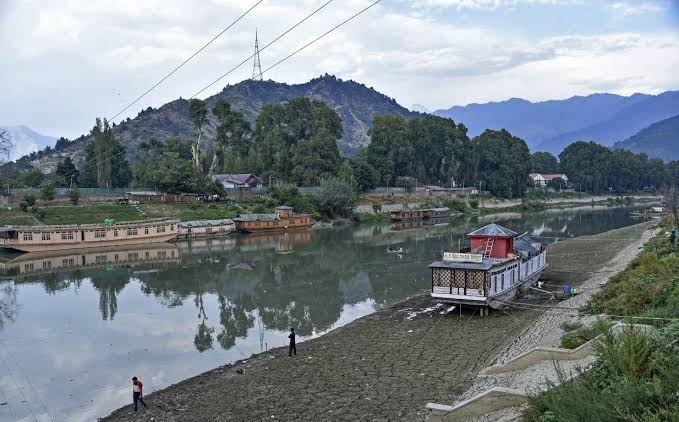Srinagar: With prolonged dry spell leading to the reduction in water level in most of the water bodies across the Valley, the Kashmir-based power houses are generating less electricity, prompting the government to go ahead with power curtailment, causing immense hardships to the people.
Pertinently, August and September—2023 has recorded deficient rainfall while the hot and humid weather conditions continued for weeks together, breaking the decades old record in the month of September.
The hot and humid weather conditions resulted in reduction in water level in the famous water bodies including river Jhelum, Chena, Doodh Ganga and others following which the people complained of water scarcity in their areas.
However, with the passage of time, the consumers across the Valley have been complaining of erratic power supply, demanding authorities to ensure uninterrupted electricity supply to the people.
The complaints are being received from Natipora, Rambagh, Barzulla, Bhagat, Chanapora, Dalgate, Boulevard, Nehru Park, Habb Kadal, Chattabal and other places. “The conditions are the same in both metered as well as the non-metered areas,” the consumers said.
Chief Engineer, Kashmir Power Distribution Corporation Limited (KPDCL), Javed Yousuf Dar told the news agency—Kashmir News Observer (KNO) that the department has resorted to the power curtailment in view of the less power generation at the powerhouses of the valley in wake of the reduction in water level of river Jhelum, Chenab and other water bodies.
He said that besides the less power generation, the temperature has plummeted, which in result has increased the demand of electricity, thus promoting the KPDCL to go for power curtailment. “We are trying to ensure less curtailment in the areas where smart meters have been installed,” he added.
The Chief Engineer further said that the availability of electricity from outside is too less, but the government is trying to arrange more electricity and hopefully in the coming days, the situation would improve.
It is worth mentioning that two weeks ago, the water level in river Jhelum was recorded 70-year low due to the prolonged dry spell in Jammu & Kashmir.
The prolonged dry spell ended on Sunday when the upper reaches of Gulmarg and other areas received fresh snowfall and the rains lashed the plains across J&K, which also led to the decrease in maximum temperature—(KNO)











